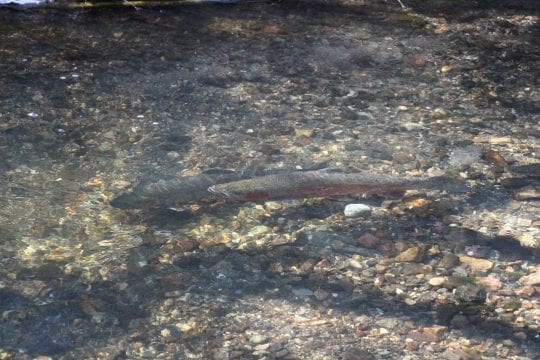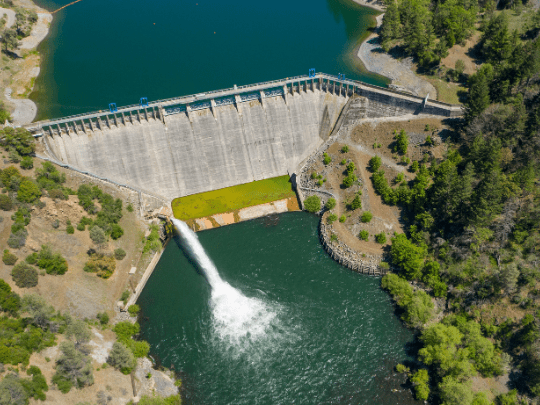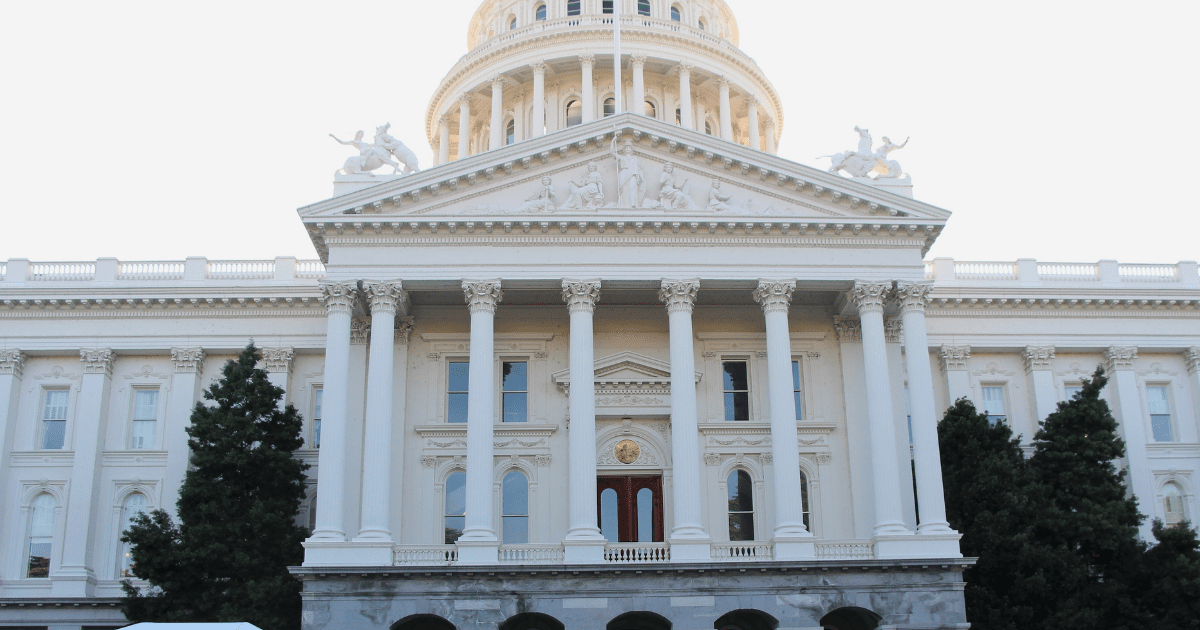2021 CalTrout Legislative Outlook

by Redgie Collins
CalTrout Staff Attorney
Legislative Outlook in 2021
As we welcome the Biden and Harris administration to the White House and a new California legislature into session, CalTrout has taken some time to reflect and prepare for 2021. Regardless of your politics, the reality is that the past federal administration sought to dismantle environmental protections and was an unwilling partner in conservation efforts in California over the past four years. The armed attack on our nation’s Capitol and the wobble on our four-year democratic orbit have shaken our country, but CalTrout has remained focused on the impact on our mission.
We have already seen glimpses of changes and good news: the omnibus bill, passed in late 2020, offered restoration funding for a key watershed. The executive orders signed on January 20th seek to restore science as our guiding light, and CalTrout has an ambitious California advocacy agenda for 2021. As Amanda Gorman stated in her inaugural recitation of her poem The Hill We Climb: “Let us leave behind a country, better than the one we were left with.”
Here’s a sneak preview CalTrout’s 2021 legislative agenda:

Photo: Southern steelhead by Mike Wier
State
California’s Commitment “30 by 30”
Governor Newsom has committed to protecting 30% of California’s land and coastal waters by 2030. CalTrout supported this effort in 2020 and will double down on supporting this effort to accelerate state protections for our natural resources. This effort aims to work with landowners, conservation interests, and marginalized communities to reach this goal through innovative strategies on natural and working lands.[1]
Natural Resources Bond
The California legislature is committed to passing the Wildfire Prevention, Safe Drinking Water, Drought Preparation, and Flood Protection Bond Act of 2022[2], during this legislative cycle. The Bond would be the next great investment into watershed protections and CalTrout will be advocating for our priorities over the next two years.
6PPD Assessment
A University of Washington-led study has identified a chemical used in tire manufacturing that leads directly to acute mortality in coho salmon. CalTrout is working with the California legislature and the Department of Toxic Substances Control to study how this chemical affects our coho salmon and to determine how we solve this problem.[3]
North Coast Salmon Initiative and Green Tape
CalTrout is working closely with the California Department of Fish and Wildlife and other conservation partners on the North Coast Salmon Initiative to help streamline grant reform and project implementation in this region. CalTrout was able to preserve this program through the pandemic recession last year, and even saw an increase of $4.5 million dedicated to this program.
Southern Steelhead CESA Listing: CalTrout, led by the South Coast Regional Director Dr. Sandra Jacobson, will be pursuing the landmark listing of southern steelhead under the California Endangered Species Act. While the southern steelhead is listed federally, this listing will offer additional protections and restoration efforts.
State Fiscal Outlook and Budget Assumptions
Governor Newsom released his 2021-2022 proposed budget which accounts for a total of $227 billion in state spending. The proposed budget assumes a projected windfall of about $15 billion, which is a little more conservative than the Legislative Analyst’s Office (LAO) 2021-2022 Fiscal Outlook, which provides their assessment of the state’s fiscal situation for the budget year and over a multiyear period. Overall, CalTrout will have to be strategic surrounding the allocations of funding it seeks, but California’s economic forecasts are rosier than anticipated.

Photo: Potter Valley Project, Scott Dam by Kyle Schwartz
Federal Government
Omnibus Bill: CalTrout has been more and more focused on gaining federal funding for our large-scale restoration projects and were pleased to support some additions in the Omnibus federal bill package passed in December of 2020. One such section, the Aquatic Ecosystem Restoration provision, sponsored by Sen. Kamala Harris and Rep. Huffman of California and Sen. Ron Wyden of Oregon, creates a new program to fund improvements to fish passage and improve aquatic health by addressing large-scale aging infrastructure, prioritizing basin-scale, multi-stakeholder collaborative solutions. CalTrout supports this effort, and hopes that these resources can support the Potter Valley Project continue its momentum towards dam removal.
Paris Climate Accord: CalTrout applauds President Biden for immediately re-entering the Paris Climate Accord, which places a central focus on combatting climate change and supporting states like California on its climate-related goals.
Restoring the EPA’s focus on Science: The last four years have seen an administration blatantly removing the need for scientific review for protections of our nation’s natural resources, including its cold clean water. Biden has taken note and has directed the “EPA to review laws past during the past four years that reduce critical protections of our natural resources.”\
Further, the administration has made its policy clear:
“It is, therefore, the policy of my Administration to listen to the science; to improve public health and protect our environment; to ensure access to clean air and water; to limit exposure to dangerous chemicals and pesticides; to hold polluters accountable, including those who disproportionately harm communities of color and low-income communities; to reduce greenhouse gas emissions; to bolster resilience to the impacts of climate change; to restore and expand our national treasures and monuments; and to prioritize… environmental justice.”
We applaud the effort, and we are encouraged that the litigation CalTrout is pursuing on clean water act protections at the federal will benefit from an EPA and administration that values science and the support of the necessary protections of our natural resources.[4]
Resources
[1] Secretary Speaker Series: 2021 Priorities with Secretary Crowfoot—Resilience and Resurgence: Advancing Environmental Stewardship Across California On February 2, 2021 from 12:30-1:30 p.m., please join Secretary Wade Crowfoot for a virtual town-hall to learn more about—and help inform—Agency priorities for 2021. We look forward to a conversation about advancing Agency priorities toward doubling down on climate action, advancing environmental conservation to meet the Governor’s new “30 by 30” commitment, and expanding tribal engagement and equitable access for all. The event will be live-streamed and viewed on Zoom, and a flyer is attached as well.
[2]SB-45 Wildfire Prevention, Safe Drinking Water, Drought Preparation, and Flood Protection Bond Act of 2022. https://leginfo.legislature.ca.gov/faces/billNavClient.xhtml?bill_id=202120220SB45#:~:text=SB%2045%2C%20as%20introduced%2C%20Portantino,Protection%20Bond%20Act%20of%202022.&text=This%20bill%20would%20provide%20for,%2C%202022%2C%20statewide%20general%20election.
[3] Scientists solve mystery of mass coho salmon deaths. The killer? A chemical from car tires: https://www.latimes.com/california/story/2020-12-03/coho-salmon-tire-chemical
[4] https://www.whitehouse.gov/briefing-room/presidential-actions/2021/01/20/executive-order-protecting-public-health-and-environment-and-restoring-science-to-tackle-climate-crisis/





